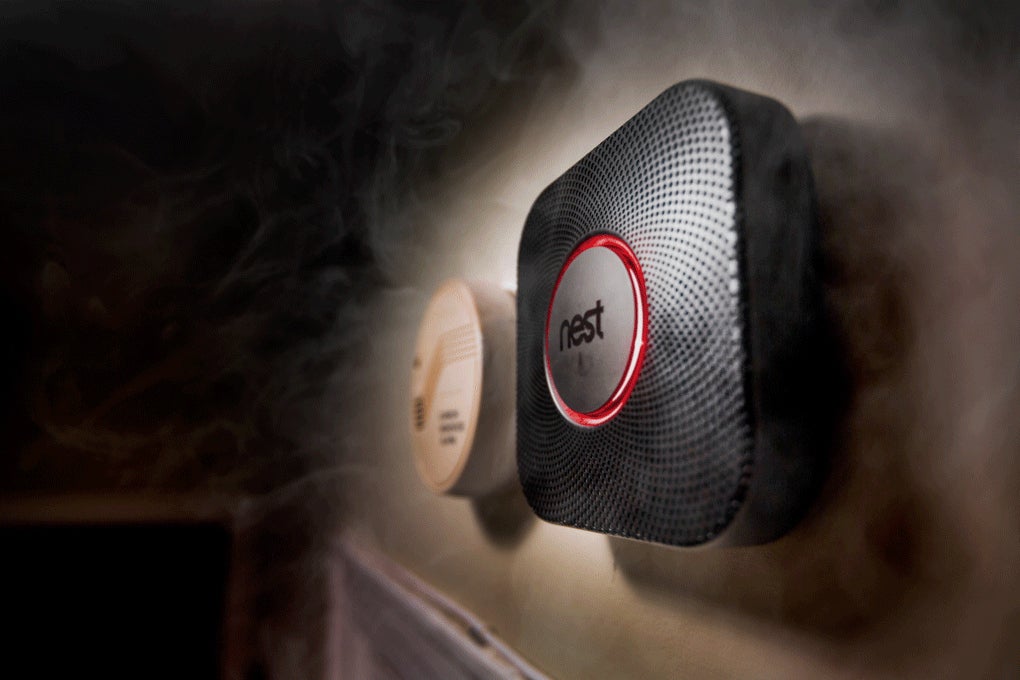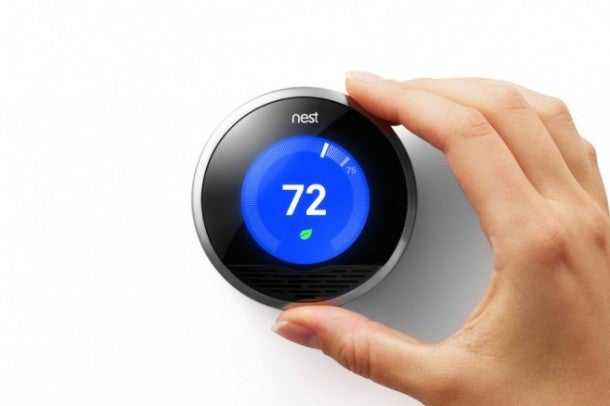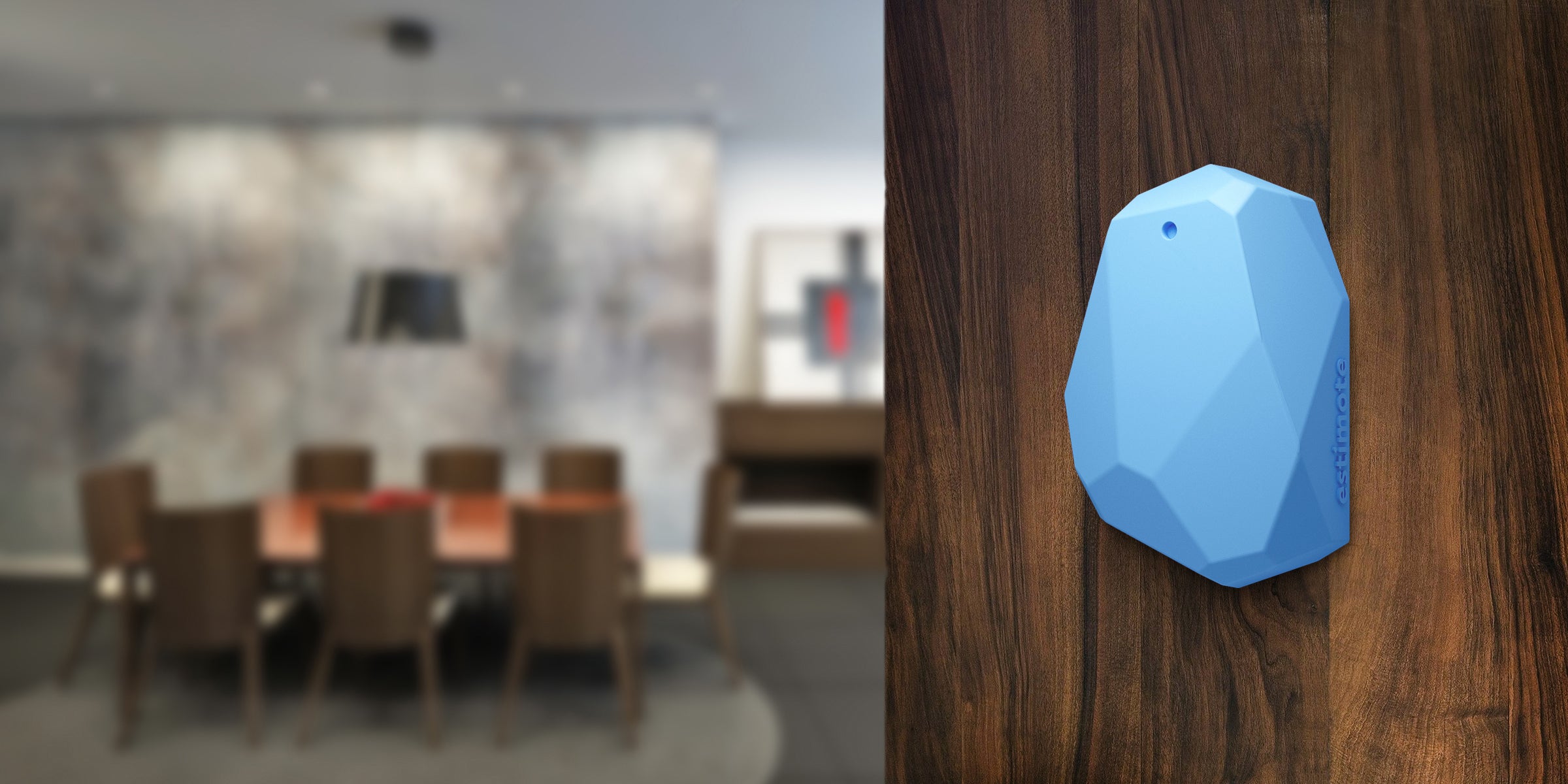Google buys Nest for $3.2bn: What does this mean for home automation and 'the internet of things'?
Many questions have been raised by Google's second largest acquisition: how will Apple react? How safe is your data? And could it all be about robots?

Google’s $3.2 billion (£2bn) acquisition of Nest, a company that specialises in building sleekly designed, internet-connected products for the home, has sent shockwaves through the tech community - and for good reason.
Last week’s Consumer Electronics Show (CES) in Las Vegas showed that the ‘internet of things’ (adding computerised smarts to ‘dumb’ appliances) is going to be a big deal in years to come, with Cisco CEO John Chambers predicting that the market will be worth $19 trillion by 2020.
But despite this hype, most of the products showcased don’t hold much attraction for the casual consumer. Do you really want a washing machine that can text you? Or a fridge you can take calls on?
Nest’s brilliance is that it cuts through this confusion, creating technologies that have been hailed for their ease-of-use, attractive design, and for actually solving problems rather than creating them. They've only release two products so far (and these are only on sale in the US and Canada) but both have been extremely well received.
The Nest thermostat learns users' habits - you set it manually a few times and it will pick up and automate temperature changes depending on your routine - whilst the Protect smoke-detector takes some obvious steps forward by being easy to turn off (you can wave your hand at it), connecting up to your mobile for peace of mind on the move, and adding carbon monoxide detection to the traditional set up.
Peter Nieh, a partner a Lightspeed Venture Partners and a Nest investor, told the Financial Times that the company’s “magic” was its ability to “marry software and hardware in a way that makes them sing together in a customer experience.”

How will Apple take this?
If the quotation above sounds similar to the sort of marketing copy that usually turn up in an Apple advert it should come as no surprise. Nest CEO and co-founder Tony Fadell is a former Apple employee known as the "godfather of the iPod", and many are surprised that the company sold to Google and not the iPhone makers.
Business Insider has suggested that this could be due to long-standing tensions between Fadell and British-designer Jony Ive (credited with the look of Apple's most famous products and now head of industrial design at the company) but it isn't the end of an Apple relationship. Nest has always supported iOS and Android products equally and has said it will continue to do so in the future.
Apple has yet to announce any decisive moves into the 'internet of things' market, but it has a number of products in its roster that would fit well. iBeacons, for example, has been described as an "indoor GPS" that tracks your exact location in a house, whilst Siri's voice recognition would also be useful in issuing commands at home. There's nothing definite from Apple yet, but expect something substanial down the line.

How safe are you, how safe is your data?
By now, most consumers are aware of the pact they make with big internet companies: we offer up personal data in exchange for services. Google has been one of the biggest proponents of this model, using info about its users to created profiles to sell to advertisers. Adding information about your home habits would surely be a boon to this.
Fadell has stated that Nest’s privacy policy is going to stay unchanged, it seems pretty inevitable that some time down the line this will change and Google will gain access to even more info about users’ daily routines.
In addition to this here’s the problem of security. No connected device is 100 per cent secure, and the idea of having your home ‘hacked’ is even scarier than having your bank attacked. Is this a real carbon monoxide leak or are some kids setting off the alarm for a laugh?
As well as handling data, Google will also be handling users’ security in a far more direct way than ever before. These sorts of problems – and the scepticism of users – won’t be easy to overcome.

Is it all about robots?
The Atlantic’s Alexis C. Madrigal points out that Nest doesn’t think of itself as a consumer tech company but as a robotics company with an emphasis on machine learning – training artificial intelligence to adapt and respond to human activity.
In this light the acquisition would complement Google’s recent surge towards robots (a move that has taken the form of a shopping spree, including the purchase of Boston Dynamics), with Nest’s expertise adding some more brains to Google’s impressive hardware roster.
Nest’s vice president of technology is one such expert: a “roboticist and artificial intelligence expert” named Yoky Matsuoka who has told The Atlantic that her interest was in “how the human brain learns to do things and how machine learning comes in to augment that.”
Join our commenting forum
Join thought-provoking conversations, follow other Independent readers and see their replies
Comments
Bookmark popover
Removed from bookmarks